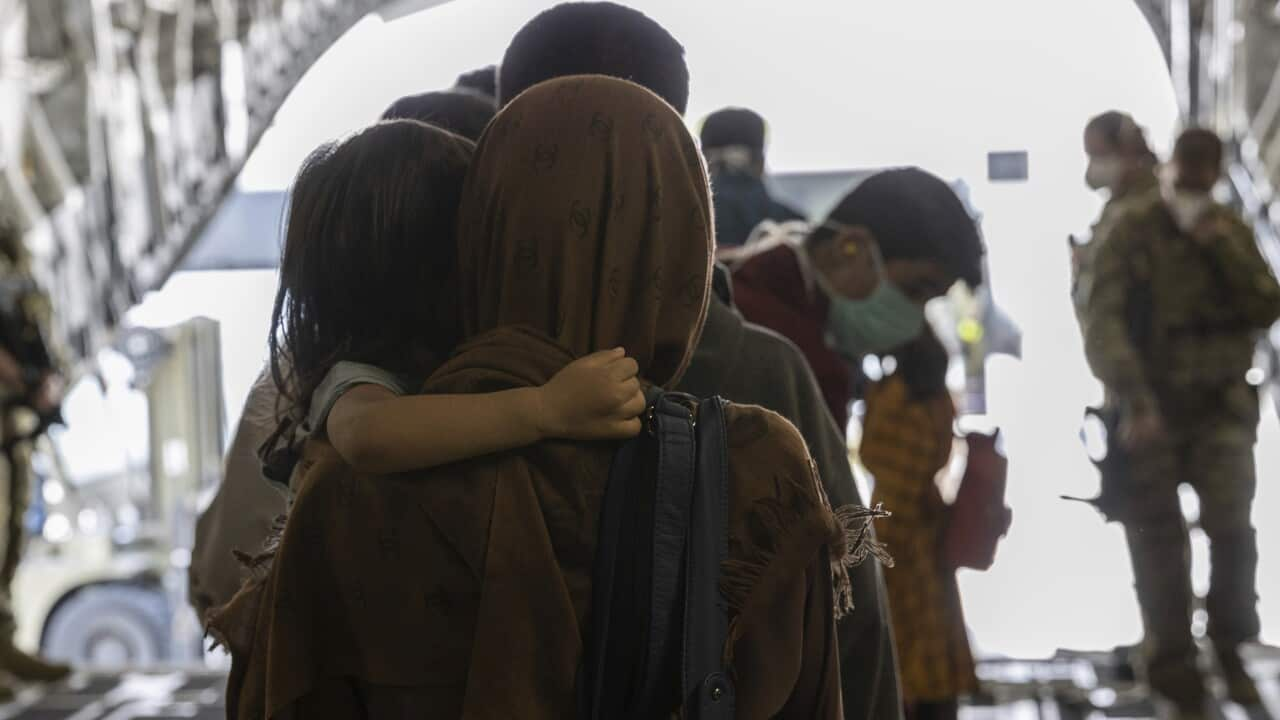A debate over the makeup of Australia's migration program is expected to grip the federal election, with Labor to make reform in this area a key plank of its campaign.
Labor’s Home Affairs spokesperson Kristina Keneally has unveiled her party’s intention to overhaul Australia’s reliance on short-term temporary visas.
Details on specific policy proposals are scarce, but the party has outlined it wants to make it easier for foreign workers to become permanent residents.
Senator Keneally told SBS News Australia had moved towards becoming “something we have never been - a guest worker nation”.
“The reopening of the borders gives Australia an opportunity to reduce reliance on temporary migration," she said.
"Support permanent migration and invest in skills and jobs for Australians."
Labor has flagged it will make policy announcements focused on migration during the campaign, with the federal election poised to be called within days.
Senator Keneally said the migration program needed to focus on areas of skill shortage, rather than providing a steady stream of temporary workers on low wages.
“Our migration program should favour permanent over temporary migration, to create a nation of people with equal rights and shared interest in our national success,” she said.
Immigration Minister Alex Hawke has accused Labor of failing to provide any detail on how it would reform the system.
"Labor has no clear or consistent policy on immigration, only thought bubbles," he said.
He also labelled Senator Keneally's "signals on immigration policy" as "erratic and inconsistent."
He has previously said immigration to Australia following the COVID-19 border closure would be focused on supporting the nation's economic recovery.
The number of short-term visa holders in Australia reached 2.4 million before the COVID-19 pandemic but has since fallen dramatically to around 1.8 million following the border shutdown.
Former deputy secretary of the immigration department Abul Rizvi said data on the number of temporary visa holders in Australia had shown a trend increase in recent years, in contrast to relatively stable permanent migration levels.
“Over the last five, six, seven years a spring of policy changes have been made that have taken us further down the path of a low-skilled guest-worker society,” he told SBS News.
“I would say we do need to deal with that but I would also say that fixing that won’t be cheap, it won’t be easy and it won’t be quick.”
He said he believed the transition of people from temporary to permanent visas could be made more “sensible” and “transparent” to ensure they aren’t “stuck” for “years and years on end.”
But added that the dependence on workers using short-term visas including in the agriculture sector, tourism and hospitality and aged care sector meant “weaning them off will not be easy”.
Migrant Workers Centre chief executive Matt Kunkel said its research had demonstrated a link between workplace exploitation and temporary visa status.
“We know that building a pathway to permanency for temporary visa holders that want one is one of the single most important things we can do to stamp out migrant worker exploitation,” he said.
“This should be a bipartisan issue - rebuilding the economy and the necessity for migrant workers to play a really important role shouldn’t be an election matter.”
Opposition Leader Anthony Albanese has indicated targeting this exploitation would be a focus of Labor's approach to migration reform.
“What we are simply saying is that we need to make sure that we are not just solely relying upon temporary migration because we have seen the consequences during the pandemic,” he said.
"We'll have more to say about the detail."
But migration analysts have indicated any prospect of reforming the balance of Australia’s migration system poses a difficult task ahead.
“I’m generally supportive of the idea that we have more permanent migration - but I think it will be very hard to achieve,” Associate Professor Anna Boucher of the University of Sydney said.
“I believe that they are going to get a lot of pushback from business, especially if they are proposing to cut back some of the visa classes to support low skilled labour.”
Business leaders - including the Australian Industry Group - have identified the shortage of skilled labour as among the highest barriers to economic growth.
It’s also called for the government to provide employers with easier access to skilled workers from overseas - which are heavily reliant on temporary visa options.
Professor Boucher said that navigating the politics of migration policy remained a challenging area for both parties.
“They are both going to have changes in the way they navigate this policy terrain,” she said.
“Labor on the one hand wants to be seen as pro-migrant but also pro-Australian worker so doesn’t want to suggest there is competition between the two.
“The Coalition on the other hand doesn’t want to be seen as only creating a guest worker model.”













